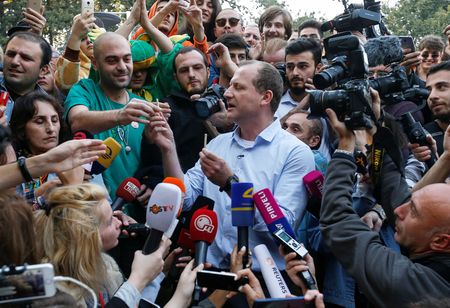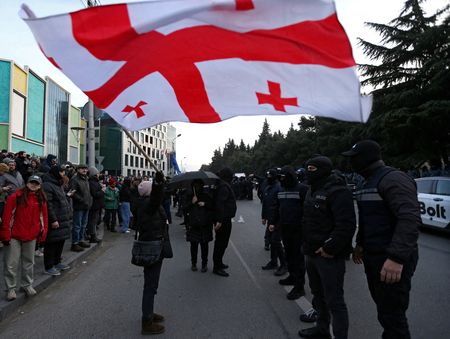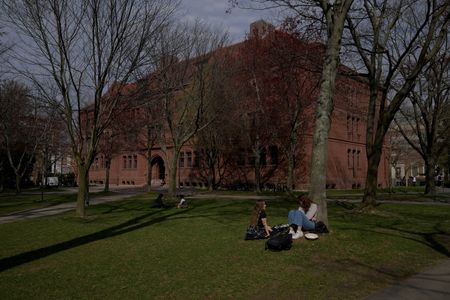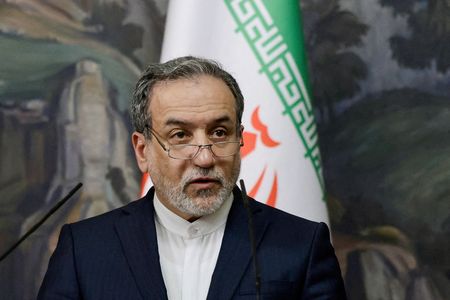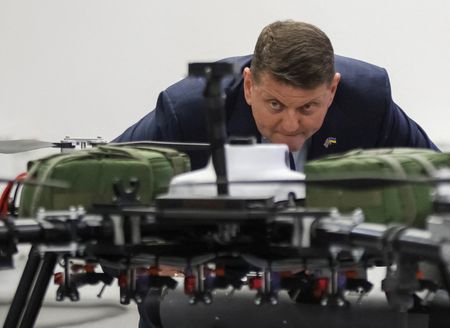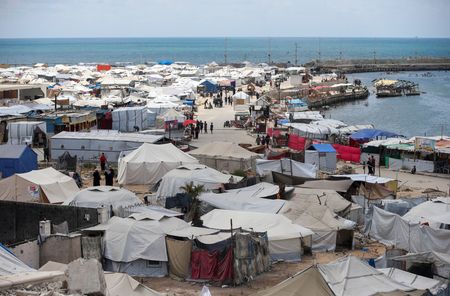By Felix Light
TBILISI (Reuters) -A Georgian court on Thursday placed Zurab Japaridze, one of the leaders of the country’s largest opposition party, in pre-trial detention, as the government clamps down on dissent after major protests last year.
It was not clear for how long he had been put into custody, according to Georgia’s Interpress news agency.
Japaridze, a prominent leader of the Coalition for Change, which came second in last year’s parliamentary election, had refused to appear at a parliamentary inquiry into alleged crimes committed under jailed former President Mikheil Saakashvili, between 2004 and 2012.
Japaridze had been held in contempt by parliament, and refused to pay bail in order to avoid jail. He and other opposition figures say the inquiry is an illegitimate propaganda exercise by the ruling Georgian Dream party.
A baseball cap-wearing libertarian with a following among younger Georgians, Japaridze has been among the most prominent figures at street protests since last year. He has said he carried a gun until his license to do so was revoked by a court amid last year’s protests.
The ruling came amid a large police presence outside the court building, alongside a protest of opposition supporters.
Georgian Dream’s powerful founder, billionaire ex-prime minister Bidzina Ivanishvili, has in recent months repeatedly pledged to ban opposition parties for what he says are their links to Saakashvili, who remains deeply divisive among Georgians.
Previously one of the most pro-Western and democratic of the Soviet Union’s successor states, critics of the Georgian government say the country has in recent years moved in an authoritarian and pro-Russian direction.
In November, shortly after a parliamentary election the opposition said was falsified, the ruling party said it would halt European Union accession talks until 2028, abruptly freezing a long-standing and popular national goal that is written into Georgia’s constitution.
Georgian Dream says it still wants to eventually join the EU, but also wants balanced relations with Russia, which ruled Georgia for around 200 years until 1991. It says the October election, in which it gained a majority of seats in parliament, was free and fair.
Georgia and Russia have had no formal diplomatic relations since 2008, when Tbilisi was defeated in the latest in a series of wars with two Russian-backed breakaway provinces.
(Reporting by Felix LightEditing by Alexandra Hudson)

